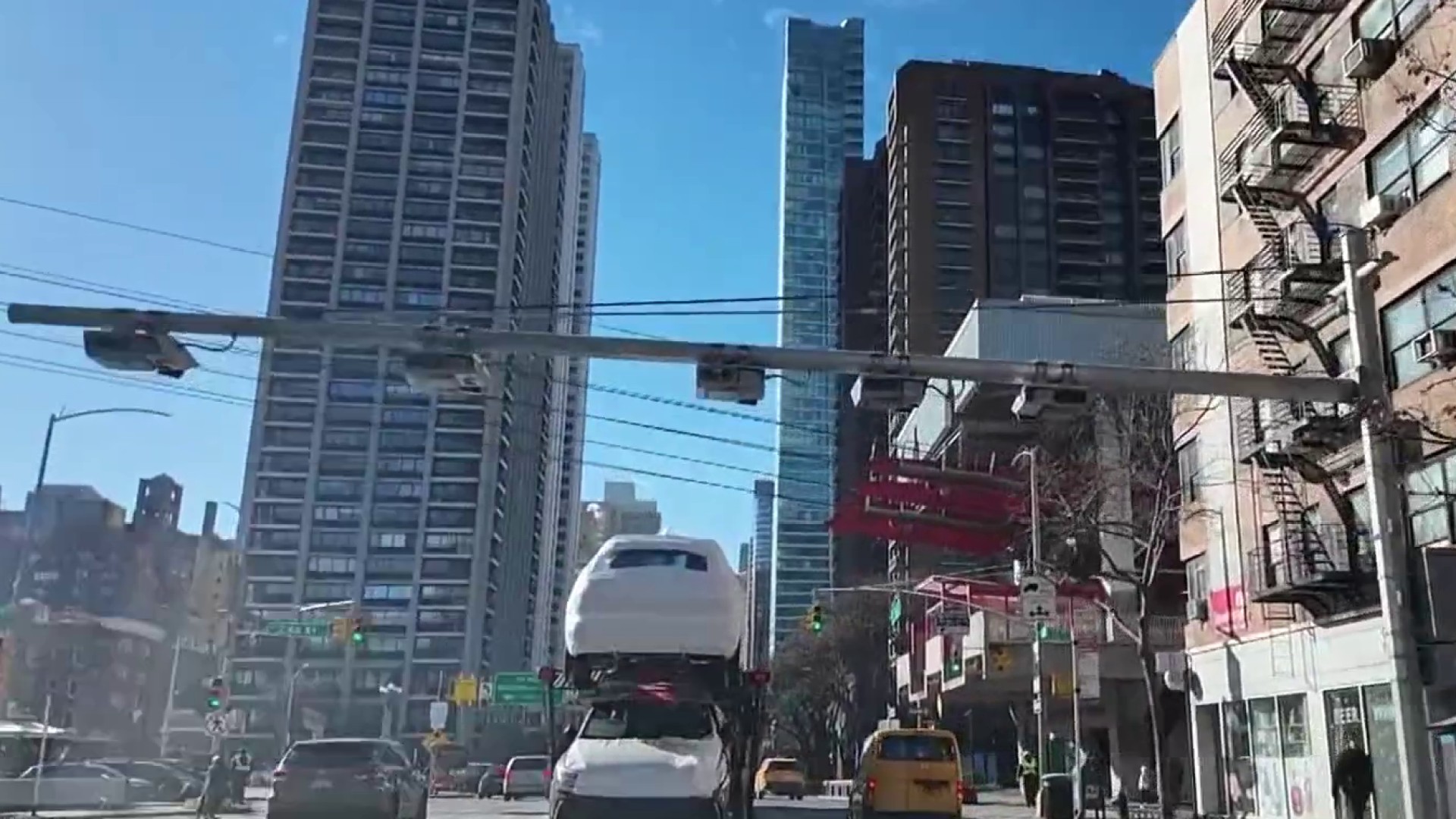A judge denied New Jersey's last-ditch effort to stop the MTA's long-anticipated, and at times much-maligned, congestion pricing plan from going into effect.
During a Friday afternoon hearing in Newark, just hours before the controversial plan for Manhattan was set to go into effect, Judge Leo Gordon ruled against granting a temporary restraining order that the state had filed.
The state said it would file its appeal to the judge's decision Friday evening or Saturday morning.
"We respectfully disagree with the trial court’s decision not to halt New York’s congestion pricing program before it goes into effect on Sunday. The judge found that the Federal Highway Administration acted arbitrarily and capriciously in approving the MTA’s plan and that insufficient environmental mitigation commitments were made to New Jersey," said Randy Mastro, the state's attorney.
Get Tri-state area news delivered to your inbox. Sign up for NBC New York's News Headlines newsletter.
Congestion pricing is set to go into effect after midnight on Jan. 5. MTA Chairman Janno Lieber said the agency was "gratified" by the judge's decision to deny the injunction.
"We've been studying this issue for five years, but it only takes about five minutes if you're in midtown Manhattan to see that New York has a real traffic problem," Lieber said at a press conference Friday night after the judge's decision was announced. "Now, after untold numbers of lawsuits and lots of fighting in the press, the time for debating for lawsuits and debating is over."
New Jersey officials and attorneys had argued that Bergen County and other areas west of the Hudson will suffer environmentally from new traffic patterns. In looking for a temporary restraining order, the state was hoping to be granted time for the MTA to clarify and reconsider the plan.
"I am deeply disappointed that the Court has allowed the flawed congestion pricing plan to move forward, disregarding the severe environmental, public safety, and economic impacts it will impose," Bergen County Executive Jim Tedesco said. "This decision underscores the urgent need for continued legal action to hold the MTA and FHWA accountable for their failure to address the adverse effects of this scheme."
Tedesco said "Bridgegate-esque gridlock" could be expected as a result of enacting the plan, and demanded additional funding for the county's public transportation system, including an extension of the Hudson Light Rail.
A spokesman for New York's governor, previously said the nation’s first congestion toll will begin as scheduled.
“Congestion pricing is still going to take effect on Sunday, January 5th,” said Avi Small, Gov. Kathy Hochul's press secretary.
Hochul had paused congestion pricing back in June, but unpaused it in November at a lower fee.
Years in the making, the congestion pricing program tolls drivers entering Manhattan south of 61st Street. The peak price for cars with EZ-Pass is $9. Off-peak rates drop to $2.25. The MTA has touted the toll as a way to generate billions to modernize mass transit.
"Congestion pricing will improve commutes for millions of workers and create tens of thousands jobs in New York, New Jersey and Connecticut. This transformative policy, which subway and bus riders won over a decade of campaigning, will upgrade public transit while cutting gridlock and toxic air pollution across the entire region," said Betsy Plum, the executive director of Riders Alliance.
Plum added that should New Jersey opt to appeal the decision, Gov. Phil Murphy would cement "a legacy as a transit-destroying, climate-denying champion of inequality and longer commutes."
Congestion pricing map

Transit officials had previously dismissed New Jersey's last-minute legal maneuvers.
“Nobody in their right mind should take transportation advice from the New Jersey politicians who have woefully failed to manage transit in their state—while also endorsing higher tolls on their own roads and on Port Authority bridges and tunnels, and higher fares on NJ Transit," John McCarthy, MTA chief of policy and external relations, said in a statement. "Endless litigation over New York’s program to improve its transit and reduce traffic is the height of hypocrisy.”
New Yorkers who rely on the subway say the new fee mirrors what several international cities have implemented.
“I lived in London a little bit and I know it’s helped a lot there,” said Claire O’Donnell-McCarthy, who lives just north of the Manhattan zone on the west side.
She scoffed at New Jersey’s 11th-hour request for an injunction: “It’s not their place to say what we do in Manhattan.”
Lieber echoed her support for the plan, saying "New York is going to implement a strategy that's been successful in other great world cities that have struggled with traffic, like London, Stockholm, Singapore."
But City Council member Bob Holden of Queens, who has also sued the MTA on the grounds the new toll hurts outer borough residents disproportionately, predicts even if the congestion cameras get switched on this weekend, another court hearing in a case brought by Hempstead looms in just two weeks.
“It’ll start, but then it’ll stop. That’s my guess,” Holden told NBC New York.



